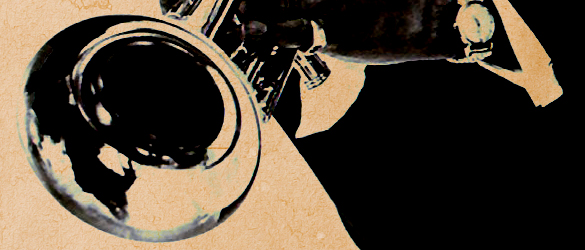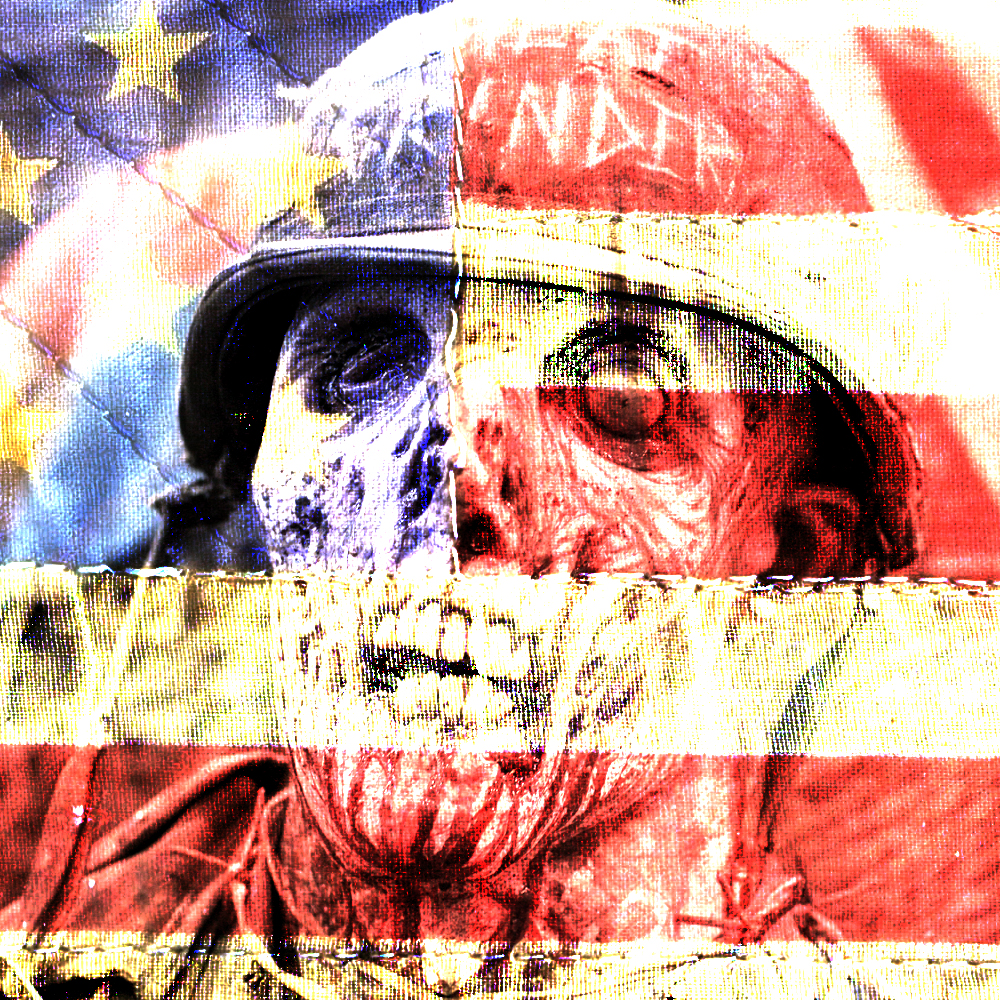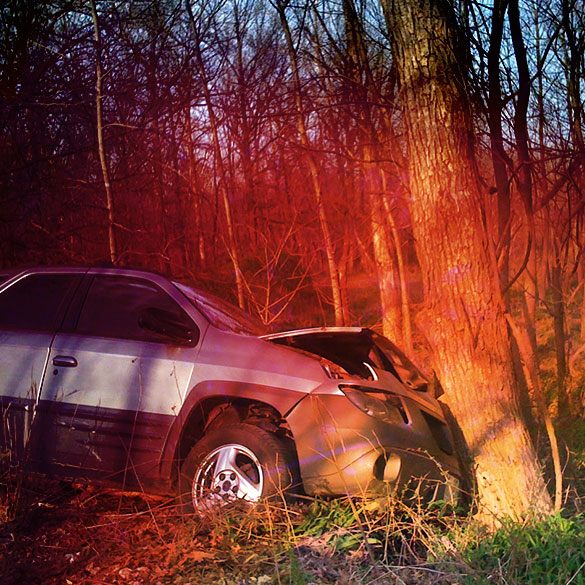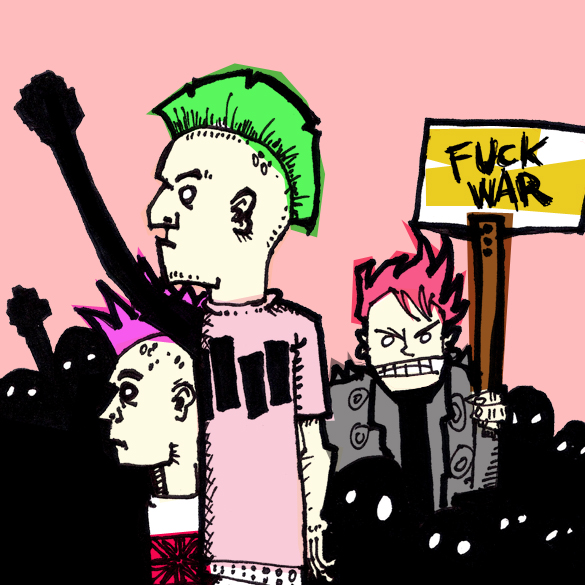“The music is dead, Johnny.”
Johnny looked surprised. He took a sip of beer. It caught him off guard. Johnny rose his breath in protest.
“It never dies.”
“I seen it die.”
Johnny couldn’t really argue with that. He grabbed the pack of cigarettes from his shirt pocket; he took one out, patted the filter against his wrist and brought it to his mouth. He lit it and leaned back a little. The bar stool creaked.
“What are you gonna do, Freddie?”
Freddie was silent. He stared into the rim of his glass.
“Shit.”
Johnny was silent.
The bar had emptied out an hour ago. Freddie had taken the stage before that. James and Tommy had played the piano and the bass respectively. It was a modest crowd. Freddie struggled. When he brought the trumpet to his mouth it looked like he was carrying a tiny brass tombstone, like Time itself was weighing down his fingers. His lips were dry, chapped; his movements disorderly, out of tune with the riding bass and the jangling piano, and when Freddie played everything sounded like a cuckoo’s nest. A mess of unwanted notes and phrases. He couldn’t ride it. He couldn’t find it. It was gone. That’s what he knew.
Johnny sat at the bar stool thinking.
“What’s gonna happen?”
Freddie was silent again. He pulled the trumpet out of his case. Then he poured the whiskey he was drinking all over the trumpet. Then he closed the casket.
“An Irish funeral. C’mon, les go for a walk.”
Freddie carried around the wet case while kicking stones in the gutter. Johnny walked beside him. The night was cold, and wet, the fog was rolling up. The street lights hummed.
“I don’t think you can give up just like that,” Johnny said.
“I ain’t giving up!” And Freddie looked at him. His eyes were hurt, then he kicked a piece of trash.
“C’mon, play me something. Anything.” Johnny was egging him on. He thought if he could make Freddie angry he could stir his heart, stir something, get him angry and let him play. He couldn’t see that the coals inside Freddie, the coals that always spoke when he played, were dying too; Freddie was dying. Johnny didn’t know that.
Freddie opened his case.
“There you go man let it up, get it in there, Freddie.”
He kept up the encouragement while Freddie was opening the case and wiping off the trumpet. A car ripped by, they both looked at it like it was trying to take something from them. The car passed. They were alone again.
“C’mon, man, let me here you sing. I know you still got it.” Johnny felt victorious. Freddie had been with him from the beginning. Johnny played the guitar and Freddie played the trumpet. They’d been playing together since they were fourteen and stealing cigarettes from ash trays in bars. They grew up together and went to college together. Johnny got married to a girl he met in college, a red-head named Terry who hated jazz so he stopped playing. Freddie kept playing. Freddie got good and the fire inside of him when he was at his hottest was like the inside of a kiln. Johnny knew if Freddie kept playing he himself, his coals, were right there with him. He was waiting for it to come back, and if Freddie stopped playing, it was all over.
Freddie hit the first note. A long low wail. He held onto it for a long drab time until it faded away. Then he played three rising notes in succession and then another high note and higher and he held it high and let it fade. A car rushed by and someone threw a beer bottle that broke against the curb. Freddie opened his eyes for a moment to look at Johnny and Johnny looked at Freddie and Johnny had to turn away from Freddie when he tried to belt it out and he couldn’t. He kept playing, building up to it, he kept trying to blow from the bottom of his soul but he couldn’t find it any longer. Johnny could feel him fading away; he grew sad. He walked next to Freddie and put his arm on his shoulder. Freddie kept playing but couldn’t reach it, he couldn’t feel it, he couldn’t feel anything. It was dead. The music was dead and gone. Freddie dropped the trumpet on the pavement with a clank and walked over and sat on the curb. The fog was letting up and the street lights were still humming. Johnny lit a cigarette, walked next to Freddie and sat down. They split the cigarette and stared into space. A few cars flew by. They continued to stare into space.
“We can’t just let it go.”
Freddie was silent. He took a drag.
“You were the best, Freddie. Like a friggin superhero.”
“Even superman died,” said Freddie.
“But the music can never die.” Johnny refused to give up, but Freddie had died, and his coals had turned to ash. Freddie sat there on the curb like a frozen mummy. No sound left his body. The night was very cold and wet.
“C’mon, let’s go home.” Johnny said.
And Freddie stood up slowly, like a giant waking up from a thousand-year sleep. He looked at his trumpet lying there on the cold cement. It looked farcical to Freddie. Like a monkey in space. It’s round edges juxtaposed with the straight angles of the ground. He looked at Johnny. Johnny looked back at Freddie and Freddie picked up the trumpet and smiled a little while his hands grew cold. He put the trumpet in the case and stood next to Johnny.
“Let’s go.” And Johnny put his arm around Freddie’s shoulder and they walked home. The outline of their bodies could be seen leaving the street lights.
—-
Gil Fragoso is a 28-year old aspiring writer who enjoys coffee shops, book stores, and friends. He wishes to go back to school to finish a degree in English. He is a jazz fan, a Catholic, and a heavy-smoker. He currently works at a pizza shop. One day, he would like to live in Spain.



